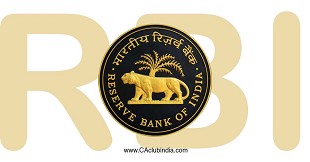Others Articles
RBI Draft Lending to Related Parties Directions 2025: Key Takeaways for NBFCs
Affluence Advisory 03 November 2025 at 06:27The Reserve Bank of India, on October 1, 2025, issued the draft "Non-Banking Financial Companies - Lending to Related Parties Directions, 2025" to strengthen governance, transparency, and disclosure in NBFC lending to related parties.
Salary Aayi, Salary Gayi - Part I: The Spending Syndrome: Thrills today, Bills tomorrow!
Raj JaggiA thought-provoking narrative on personal finance, this piece explores how mindful money management builds confidence, stability, and true financial independence.
Legal Entity Identifier LEI Understanding Its Purpose and Applicability in India
Affluence Advisory 01 November 2025 at 06:41Learn everything about the Legal Entity Identifier (LEI), a 20-character global identification code for companies and organizations engaged in financial transactions.
SEBI Restricts Mutual Funds from Pre-IPO Placements: What You Need to Know
Affluence Advisory 29 October 2025 at 06:36SEBI has barred mutual funds from investing in unlisted or pre-IPO shares, allowing participation only during the IPO or as anchor investors. The move aims to enhance transparency, ensure fair valuations, and protect retail investors.
New Bank Nomination Rules 2025 Starting From 1st November
Mitali 28 October 2025 at 11:16From November 1, 2025, bank account holders can nominate up to 4 individuals and allocate specific percentage shares under the new Banking Laws (Amendment) Act, 2025.
Darr ke aage jeet hai: Part III - Lights, Camera, Courage!
Raj JaggiDiscover how legends like Amitabh Bachchan, Akshay Kumar, Anand Bakshi, and Asha Bhosle turned fear into fuel and courage into timeless success.
SEBI's October 13, 2025 Circular on RPT Industry Standards: A Step Towards Ease of Doing Business
Affluence Advisory 27 October 2025 at 06:34The Securities and Exchange Board of India (SEBI), through its circular dated October 13, 2025, has brought meaningful relief for listed entities by rationalizi..
Darr ke aage jeet hai (The victory lies beyond our fears) - Part 2: New Dreams, New Courage
Raj JaggiThrough five real bilingual (Hindi + English) stories, CA Raj Jaggi shares how individuals turned fear into faith, passion into purpose, and challenges into lasting success.
Darr ke aage jeet hai (The victory lies beyond our fears) - Part 1: The Roots of Fearless Success
Raj JaggiDiscover inspiring real-life stories of courage and perseverance that prove "Darr Ke Aage Jeet Hai." From humble beginnings to remarkable success, learn how discipline, hard work and unwavering determination turn fear into victory.
Lata Ji And Shailendra Ji: The Unforgettable Poetry Of Barsaat (1949) And Guide (1965) - Part III
Raj JaggiExplore the timeless musical partnership of Lata Mangeshkar Ji and Shailendra Ji, where poetry met emotion. From Barsaat (1949) to Guide (1965), discover how Lata Ji's voice, guided by emotional intelligence, humility, and silent strength, transformed Hindi film songs into immortal expressions of love, longing, and life itself.
Popular Articles
- No More Forced ITC Order: New Rules from Jan 2026
- Income Tax Return Filing Due Date For AY 26-27: Full Details With New Updates
- Revised Return Due Date Extension
- TDS Rate Chart For Tax Year 2026-27: With Revised Section Codes in Challans
- Tax Deduction Rules for Employee Contributions From April 2026
- Simplified GST Changes in Budget 2026: Finance Bill 2026 CGST and IGST Amendments
- ICAI, ICSI & ICMAI to Launch Short-Term Courses to Develop 'Corporate Mitras' in Tier-II & III Towns
- Income Tax Amendments in Budget 2026: Topic-wise Summary of Key Proposals
Trending Online Classes
-
DT & Audit (Exam Oriented Fastrack Batch) - For May 26 Exams and onwards Full English
 CA Bhanwar Borana & CA Shubham Keswani
CA Bhanwar Borana & CA Shubham Keswani -
IDT LIVE Exam Oriented Batch | May 2026, Sept 2026 & Jan 2027
 CA Arpita Tulsyan
CA Arpita Tulsyan














 CAclubindia
CAclubindia
